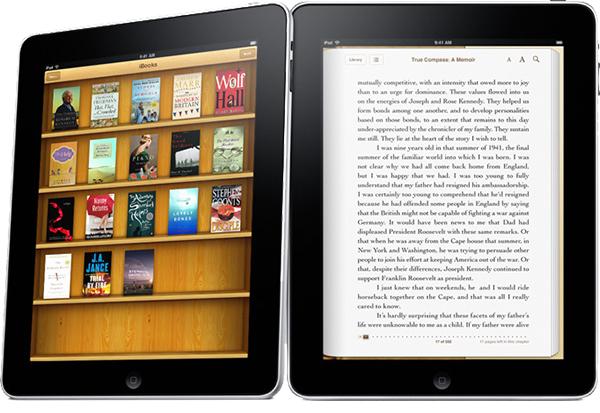In rare pre-trial "tentative view," Judge Denise Cote said the U.S Department of Justice will likely be able to prove that Apple colluded with major book publishers to falsely inflate the prices of e-books sold through the iBookstore.

According to in-court reports from Reuters, Judge Cote offered her view at a hearing for the court trial set for June 3, saying she came to the tentative conclusion after looking over a portion of the evidence.
"I believe that the government will be able to show at trial direct evidence that Apple knowingly participated in and facilitated a conspiracy to raise prices of e-books, and that the circumstantial evidence in this case, including the terms of the agreements, will confirm that," Judge Cote said.
She was quick to note, however, that the opinion was not final as all of the evidence had yet to be accounted for.
Though unusual, the jurist's statements did not come unsolicited, as DOJ lawyer Mark Ryan requested she share any thoughts on the case given the evidence at hand. The "tentative view," which came down negatively for Apple, was based largely on correspondence from a six-week period between December 2009 and January 2010.
The emails Judge Cote alluded to could include a conversation between late Apple cofounder Steve Jobs and then CEO of News Corp. James Murdoch, a page of which was published last week."We strongly disagree with the court's preliminary statements about the case today." - Apple lawyer Orin Snyder
"We strongly disagree with the court's preliminary statements about the case today," Apple counsel Orin Snyder said in a prepared statement. "We look forward to presenting our evidence in open court and proving that Apple did not conspire to fix prices."
Thursday's pretrial hearing was largely procedural, with counsel for both parties dealing with matters of testimony and trial length. Judge Cote did mention, however, that she was already drafting a written decision which would be fleshed out and published once proceedings wrap up.
At the trial, Apple will argue that it did not collude to raise e-book prices under a so-called "agency model" pricing agreement with five major book publishers. Under the deal, publishers were allowed to set prices of owned content under a most favored nations agreement, which precluded them from selling the books elsewhere for less.
Apple's model was a change from the wholesale model used by market leader Amazon, under which publishers sold content in bulk, while resellers were able to establish pricing and discounts as they saw fit.
In related news, book publisher Penguin, which was one of the five houses alleged to have conspired to raise e-book prices with Apple, settled a class-action suit on Wednesday. The publishing house paid out $75 million to 33 U.S. State Attorneys General and numerous private class plaintiffs.


